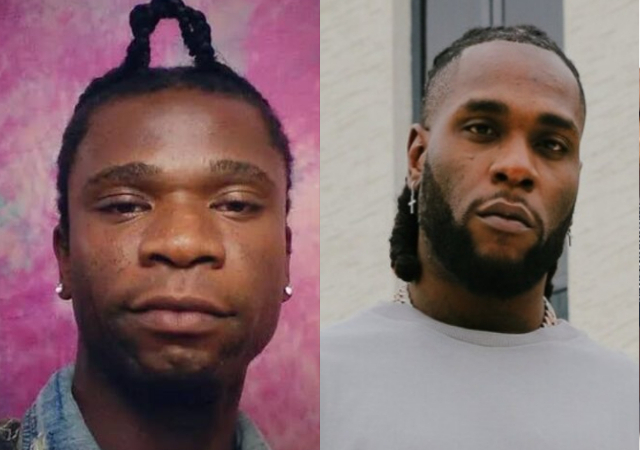Controversial Nigerian rapper Speed Darlington has laid out extraordinary conditions for reconciliation with Grammy-winner Burna Boy, demanding both a public maternal apology and substantial financial compensation. The unusual stipulation has set social media ablaze with discussions about dignity, forgiveness, and the role of family in Nigerian entertainment disputes.
In a video that has since gone viral across social media platforms, Speed Darlington articulated his specific requirements for burying the hatchet with the African Giant. Most notably, he insisted that Burna Boy’s mother must recreate a scene reminiscent of Speed Darlington’s own mother’s public apology, specifically demanding that she kneel and plead for forgiveness on national television. Additionally, the rapper has attached a precise monetary value to his forgiveness: twelve million naira.
Watch on TikTok
The demand for this public display of contrition, particularly involving Burna Boy’s mother, who is also his manager, adds a complex dynamic to what was already a contentious situation. By drawing parallels between his mother’s past public apology and his current demands, Speed Darlington has introduced a new dimension to the controversy, one that touches on sensitive cultural notes about maternal respect and public dignity in Nigerian society.
Speed Darlington’s statement was unequivocal: “I will only forgive Burna Boy if his mom publicly goes on her knees and begs me for forgiveness on national TV just as my mum did to him. Additionally, he must pay me N12 million as compensation.” This bold declaration has sparked intense debate about the appropriateness of involving family members, particularly mothers, in entertainment industry disputes.
The specific reference to his own mother’s previous public apology adds a layer of historical context to the situation, though the circumstances surrounding that earlier incident remain unclear from the available information. This comparison has led many social media users to question the validity of such a demand and whether it serves any constructive purpose in resolving whatever underlying issues exist between the two artists.
The financial component of Speed Darlington’s conditions – the demand for twelve million naira – has also raised eyebrows and generated considerable discussion about the monetization of forgiveness and the true nature of reconciliation in the entertainment industry. Some observers view this specific monetary demand as potentially diminishing the sincerity of any potential reconciliation.
The timing of this declaration is particularly interesting, coming at a point when Burna Boy’s international profile continues to rise following his Grammy win and successful global tours. Speed Darlington’s conditions for reconciliation have therefore attracted attention not just within Nigeria but from international observers of African entertainment as well.
This incident has sparked broader conversations about conflict resolution in the Nigerian entertainment industry and the role of public apologies in settling disputes. It has also highlighted the unique way in which family members, especially mothers, often become involved in professional disagreements within the industry, reflecting deeper cultural values and expectations.
The public nature of Speed Darlington’s demands has created a challenging situation for Burna Boy and his team. Any response or lack thereof will likely be scrutinized extensively by fans and industry observers alike. The involvement of Burna Boy’s mother, who has played a crucial role in her son’s career success as his manager, adds another layer of complexity to the situation.
As this story continues to develop, it serves as a reminder of how personal disputes in the Nigerian entertainment industry often evolve into complex situations involving family honor, public perception, and financial demands. The outcome of this situation could potentially set precedents for how similar conflicts are handled in the future.
Whether Burna Boy or his mother will respond to these demands remains to be seen, but the incident has already generated significant discussion about appropriate ways to handle disputes in the entertainment industry, the role of family members in professional conflicts, and the true nature of forgiveness and reconciliation in the public eye.
The entertainment industry and social media audiences now wait to see how this unusual situation will unfold, with many wondering whether this public declaration will lead to a resolution or further complicate an already complex relationship between these two Nigerian entertainment figures.




